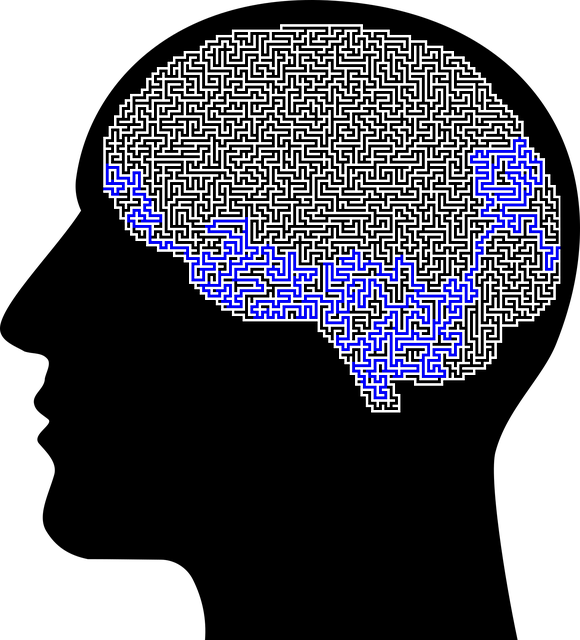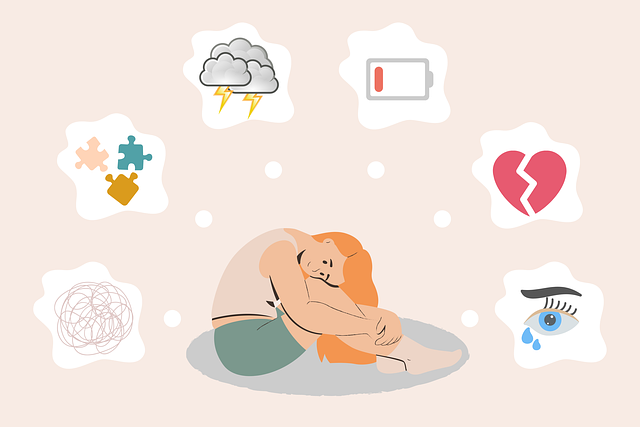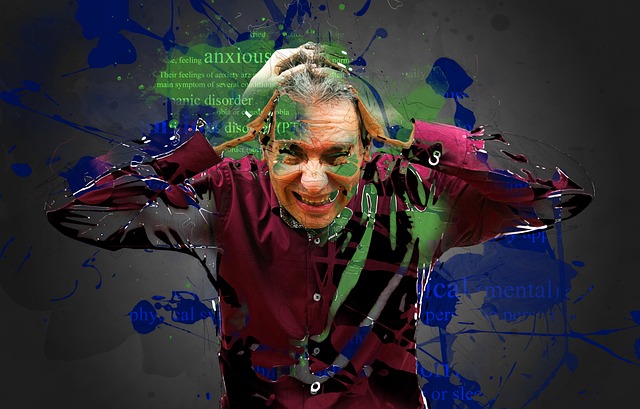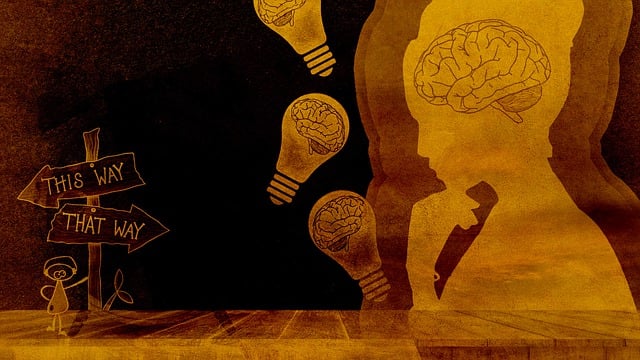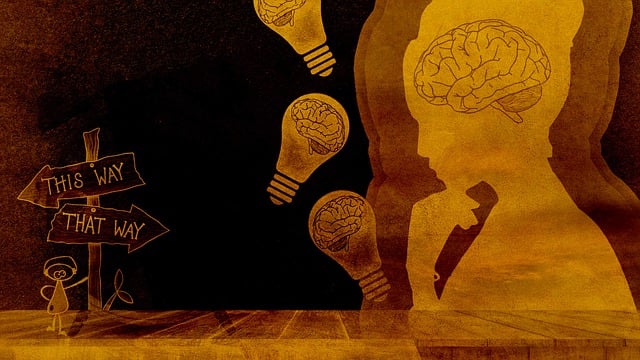Media portrayal significantly influences societal attitudes towards mental health, especially for those with developmental disabilities. Accurate and sensitive media depictions can increase understanding, empathy, and support, while negative representations can exacerbate stigma. Community Outreach Programs integrate Self-Awareness Exercises and Emotional Well-being Promotion Techniques to challenge negative portrayals. Westminster Developmental Disability Therapy advocates for inclusive representation in media, emphasizing the complexity and aspirations of individuals with developmental disabilities. By featuring diverse characters leading rich lives, this approach fosters understanding, self-esteem, and community acceptance. Involving individuals with lived experiences in content creation and promoting recovery narratives are essential strategies to reduce stigma and improve access to resources like Westminster Developmental Disability Therapy. Collaboration between media and mental health professionals is crucial for creating authentic narratives about mental wellness, aligning with burnout prevention efforts and encouraging wider societal change.
Mental illness representation in media significantly influences public perception and understanding of mental health. This article explores the impact of media portrayal on mental health perceptions, focusing on Westminster Developmental Disability Therapy as a case for inclusive representation. We discuss strategies to enhance positive mental illness depiction, emphasizing the importance of collaboration with media outlets for accurate and empathetic storytelling. By advocating for better representation, we aim to foster a more supportive and understanding society for those living with mental illness, including developmental disabilities.
- Understanding the Impact of Media Portrayal on Mental Health Perception
- Westminster Developmental Disability Therapy: A Case for Inclusive Representation
- Strategies to Enhance Positive Mental Illness Portrayal in Media
- Fostering Change: Collaborating with Media for Accurate Depictions
Understanding the Impact of Media Portrayal on Mental Health Perception

Media portrayal plays a pivotal role in shaping societal perceptions about mental health, significantly influencing how individuals with developmental disabilities or other mental illnesses are viewed and treated. The way media depicts these conditions can either foster understanding and empathy or perpetuate harmful stereotypes. When media portrays mental illness accurately and sensitively, it has the potential to increase self-awareness among viewers, promote emotional well-being, and encourage support for those facing similar challenges. This positive impact can lead to increased access to resources like Westminster Developmental Disability Therapy services and a more inclusive society.
However, inaccurate or insensitive media representation can exacerbate stigma, causing individuals with mental illnesses to feel isolated and misunderstood. It may discourage them from seeking help and negatively affect their overall well-being. To counteract this, Self-Awareness Exercises and Emotional Well-being Promotion Techniques can be integrated into Community Outreach Program Implementations. These initiatives aim to educate the public about mental health, dispel myths, and foster an environment where individuals with disabilities feel accepted and supported, ultimately challenging negative media portrayals.
Westminster Developmental Disability Therapy: A Case for Inclusive Representation

Westminster Developmental Disability Therapy offers a compelling model for inclusive mental illness representation in media. By focusing on individuals with developmental disabilities, this approach challenges stereotypical portrayals often found in popular culture. It promotes understanding and empathy by showcasing diverse characters leading fulfilling lives, with their disabilities as just one aspect of their identities. This shift is crucial, as it can lead to improved self-esteem improvement and self-awareness exercises for both represented individuals and the wider viewing public.
Incorporating such therapy into media narratives encourages the development of realistic self-care routines for better mental health. It sends a powerful message that people with developmental disabilities are capable of complex emotions, relationships, and aspirations, just like anyone else. This inclusive representation has the potential to revolutionize how society perceives and supports individuals navigating these challenges, fostering a more accepting and empathetic community.
Strategies to Enhance Positive Mental Illness Portrayal in Media

Media has a powerful influence on shaping societal perceptions and understanding of mental health. To challenge negative stereotypes and promote positive representation, several strategies can be implemented. Firstly, involving individuals with lived experiences of mental illness in the creation and consultation process is invaluable. Their authentic narratives can ensure storylines are accurate and respectful, fostering empathy among viewers. Secondly, media outlets should strive for diverse and nuanced portrayals, showcasing various types of mental health conditions and their complexities. This includes highlighting recovery stories and promoting discussions on resilience and self-acceptance.
Moreover, integrating self-awareness exercises and resources within media platforms can empower viewers to recognize signs of distress and offer support. Encouraging open conversations about mental wellness through engaging content can combat the stigma surrounding these topics, especially when incorporating themes relevant to Burnout Prevention Strategies for Healthcare Providers, as this demographic often faces unique challenges. By adopting these approaches, media can contribute to a more compassionate and informed society, potentially leading to better access to resources like Westminster Developmental Disability Therapy for those in need of Self-Esteem Improvement.
Fostering Change: Collaborating with Media for Accurate Depictions

Media plays a pivotal role in shaping societal perceptions and understanding of mental health. Accurate and empathetic representations can foster change, reduce stigma, and offer much-needed support to individuals grappling with mental illness. Collaboration between professionals like those at Westminster Developmental Disability Therapy and media entities is essential for achieving this. By involving experts in the creative process, media producers can ensure that storylines are not only captivating but also scientifically sound and sensitive to diverse experiences.
This partnership can lead to the development of more nuanced characters, compelling narratives, and authentic portrayals of mental wellness—or illness. Such initiatives complement Burnout Prevention Strategies for Healthcare Providers by promoting self-care and Emotional Intelligence within both media creation and consumption communities. Moreover, it encourages Mental Wellness Podcast Series Production as a means to amplify positive messages and offer resources to a broader audience, ultimately contributing to a healthier society.
Media representation plays a pivotal role in shaping public understanding of mental health. By adopting inclusive strategies, such as those exemplified by Westminster Developmental Disability Therapy, and collaborating closely with media outlets, we can significantly enhance positive mental illness portrayals. This, in turn, has the potential to reduce stigma, promote empathy, and foster more accurate perceptions of mental well-being across society.

